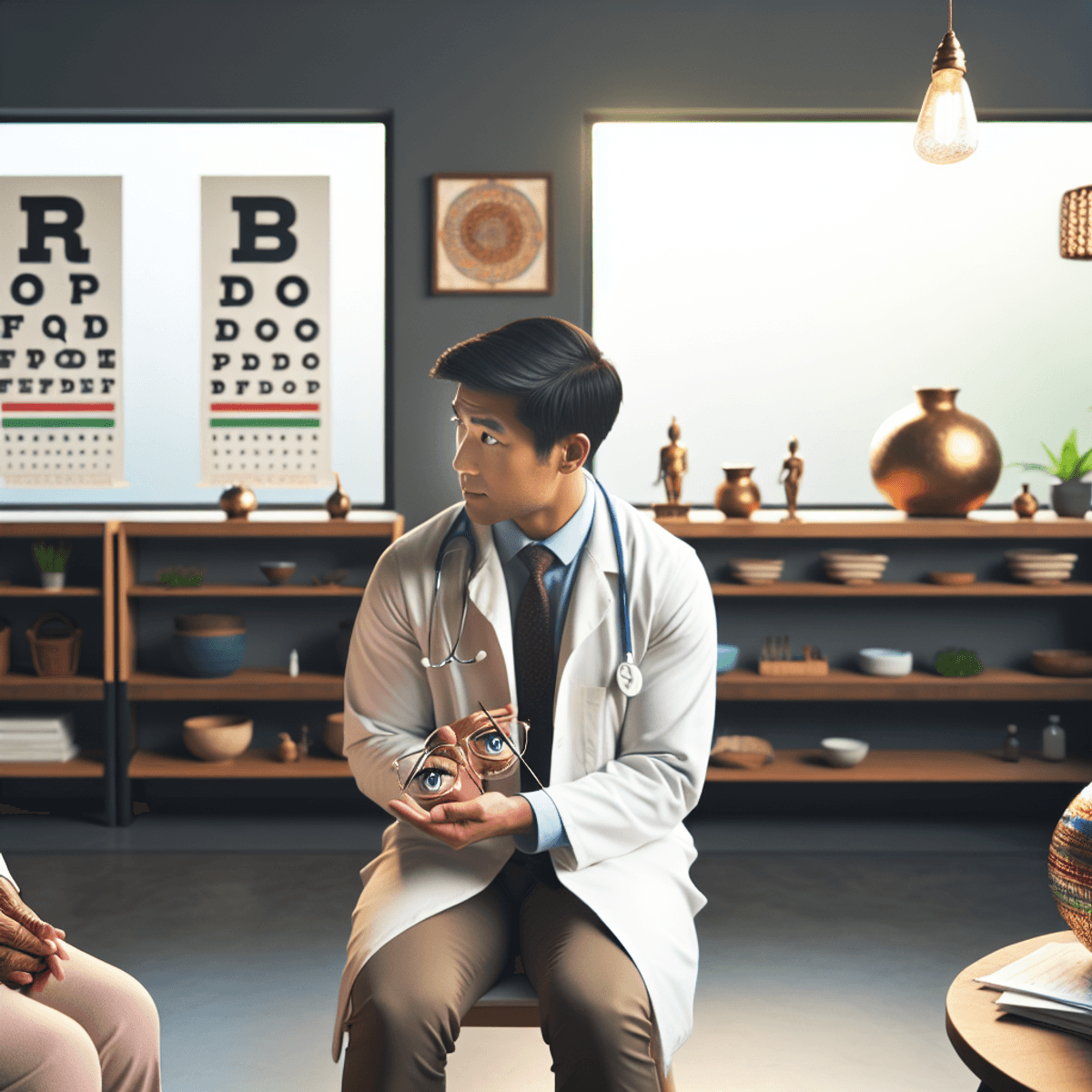Services
Ayurveda Eye Treatment
Introduction
Ayurveda, an ancient system of medicine, offers a unique approach to eye treatment that focuses on balancing the body’s energies, known as doshas. Unlike conventional treatments, Ayurveda aims to address the underlying cause of eye conditions through natural remedies and lifestyle changes. This holistic method not only targets symptoms but also promotes overall eye well-being.
The advantages of Ayurvedic treatment for eyes are numerous. By prioritizing natural solutions and therapies, Ayurveda provides an alternative for managing conditions like cataracts without resorting to surgery. DAD Ayurveda Cataract treatment without surgery is one instance where Ayurvedic practices effectively tackle imbalances and toxin build-up in the eyes.
Common Eye Conditions Treated by Ayurveda
- Cataracts: Managed through herbal remedies and detoxification therapies.
- Diabetic Retinopathy: Addressed with dietary changes and herbal support.
- Keratoconus: Treated with specialized eye exercises and herbal formulations.
- Blepharospasm: Relieved using stress-reduction techniques and herbal oils.
- Glaucoma: Supported with a combination of diet, herbs, and lifestyle adjustments.
Ayurveda’s integrative approach supports the belief that maintaining balance within the body can lead to enhanced vision health and prevention of further deterioration.
Understanding Common Eye Conditions and Their Ayurvedic Treatments
Ayurveda offers a comprehensive approach to managing various eye conditions by focusing on balancing the body’s energies, or doshas, and utilizing natural remedies. Here’s a closer look at some common eye conditions and their respective Ayurvedic treatments:
Cataracts
Definition & Types: Cataracts involve the clouding of the eye’s lens, leading to vision impairment. Types include nuclear, cortical, posterior capsule, congenital, secondary, and radiation-induced cataracts.
Symptoms: Common symptoms are blurred vision, glare sensitivity, faded colors, and difficulty seeing at night.
Ayurvedic Perspective: In Ayurveda, cataracts are recognized as “Timira,” associated with an imbalance in doshas. Treatments often focus on using herbal remedies like Maha Triphala Ghrita, a blend known for nourishing eye tissues and promoting circulation.
Diabetic Retinopathy
Overview & Symptoms: This condition arises from diabetic complications leading to retina damage. Symptoms include floaters, blurred vision, and dark or empty areas in your vision.
Ayurvedic Management Strategies: Managing blood sugar levels is crucial. Herbal treatments such as Amla (Indian Gooseberry) and Guduchi (Tinospora cordifolia) may help bolster eye health by reducing inflammation and enhancing circulation.
Macular Degeneration
Explanation & Risk Factors: Macular degeneration affects the central part of the retina (the macula), leading to vision loss. Risk factors include aging and genetics.
Ayurvedic Treatments: Nutritional support is vital. Ayurveda recommends bilberry extract, known for its antioxidant properties, along with dietary changes that include leafy greens and omega-3 fatty acids.
Uveitis
Definition & Causes: Uveitis involves inflammation of the uvea with potential causes ranging from infections to autoimmune disorders.
Symptoms & Ayurvedic Treatments: Symptoms include redness, pain, light sensitivity, and blurred vision. Treatment may involve herbs like Turmeric, due to its anti-inflammatory properties, alongside relaxation techniques like meditation to manage stress-related triggers.
Retinitis Pigmentosa
A genetic disorder causing retinal degeneration. Symptoms involve night blindness and loss of peripheral vision. Ayurvedic approaches focus on therapies like Panchakarma, combined with herbal supplements such as Ashwagandha, known for supporting nerve health.
Eye Allergy
Common allergens like pollen can cause itching, redness, and tearing. Herbs such as Neem, with its cooling properties, can be effective. Regular washing of eyes with rose water may also provide relief.
Pathological Myopia
Understanding its implications reveals that it significantly impacts vision health by causing progressive elongation of the eyeball.
Dry Eyes
Factors like prolonged screen time lead to irritation or a gritty sensation due to insufficient tear production. Ayurveda suggests using castor oil eye drops, rich in ricinoleic acid for lubrication. Consuming hydrating foods like cucumber also supports moisture retention in eyes.
Optic Atrophy
This condition relates to optic nerve damage resulting in sight deterioration. Potential interventions include therapies aimed at enhancing nerve health through herbs like Ginkgo Biloba, valued for increasing ocular blood flow.
Keratoconus
An overview identifies keratoconus as a progressive thinning of the cornea that distorts vision. Within Ayurveda, treatment focuses on strengthening eye tissues using formulations like Triphala Churna, supporting overall corneal health.
Blepharospasm
Defined as involuntary eyelid twitching or spasms; managing this condition might involve stress reduction techniques such as yoga alongside herbs like Brahmi, known for calming effects on neuromuscular systems.
Glaucoma
Understanding glaucoma highlights risks associated with increased intraocular pressure leading potentially to optic nerve damage. Ayurveda can support eye health through management strategies involving detoxification practices and specific herbal supplements aimed at maintaining fluid balance within the eye structures.
Key Ayurvedic Treatments for Eye Health
Ayurveda emphasizes the use of herbal treatments to restore and maintain eye health. A highly recommended herbal medication is Maha Triphala Ghrita, known for its ability to nourish and strengthen eye tissues. This preparation, made from a blend of three fruits, promotes blood circulation and aids in detoxifying the eyes, reducing inflammation and relieving stress.
Panchakarma, a cornerstone of Ayurvedic therapy, offers specialized detoxification procedures aimed at cleansing the body and restoring doshic balance. These therapies can significantly benefit various eye conditions by eliminating toxins that may contribute to vision problems.
In terms of lifestyle changes, Ayurveda suggests incorporating certain dietary modifications to support eye health:
- Foods rich in Vitamin E, Omega-3 fatty acids, and antioxidants.
- Avoidance of excessive sun exposure.
- Regular eye check-ups to monitor and manage any developing conditions.
Practicing yoga can also be beneficial for vision improvement. Specific exercises such as Trataka (focused gazing) and Palming help in relaxing the eyes and enhancing visual clarity.
These integrated approaches not only address existing issues but also serve as preventive measures, fostering long-term ocular well-being.
Consulting an Ayurvedic Specialist for Eye Care
Consulting a specialist is essential when considering Ayurvedic practices for eye care. Professional guidance ensures personalized and effective treatment plans. By working with an expert, you can explore Ayurveda cataract treatment without surgery, focusing on natural remedies and holistic approaches tailored to your specific needs. An Ayurvedic specialist can provide insights into balancing doshas and detoxification therapies that support eye health holistically. Whether it’s understanding the intricacies of DAD Ayurveda or integrating lifestyle modifications, engaging with a professional enhances proactive eye health management.
FAQs (Frequently Asked Questions)
What is Ayurveda’s approach to cataract treatment?
Ayurveda offers a holistic approach to cataract treatment without surgery by addressing the underlying dosha imbalance. Treatments may include herbal medications, dietary changes, and lifestyle modifications aimed at restoring eye health.
What common eye conditions can Ayurveda treat?
Ayurveda can address a variety of eye conditions including cataracts, diabetic retinopathy, macular degeneration, uveitis, retinitis pigmentosa, eye allergies, pathological myopia, dry eyes, optic atrophy, keratoconus, blepharospasm, and glaucoma.
What are some key Ayurvedic treatments for eye health?
Key Ayurvedic treatments for eye health include herbal medications such as Maha Triphala Ghrita, detoxification therapies like Panchakarma, dietary changes to support vision health, and yoga practices that enhance visual acuity.
How does Ayurveda manage diabetic retinopathy?
Ayurveda manages diabetic retinopathy through a combination of dietary adjustments, herbal remedies aimed at balancing blood sugar levels, and targeted treatments that focus on improving overall eye health.
Why is it important to consult an Ayurvedic specialist for eye care?
Consulting an Ayurvedic specialist is crucial for personalized guidance on adopting effective Ayurvedic methods for proactive eye health management. They can provide tailored treatment plans based on individual conditions and needs.
What lifestyle changes are recommended in Ayurveda for maintaining eye health?
Recommended lifestyle changes in Ayurveda for maintaining eye health include regular check-ups with an eye specialist, practicing yoga specifically designed for vision improvement, ensuring proper hydration, and consuming a balanced diet rich in nutrients beneficial for the eyes.
Discover more from DAD Ayurveda
Subscribe to get the latest posts sent to your email.









